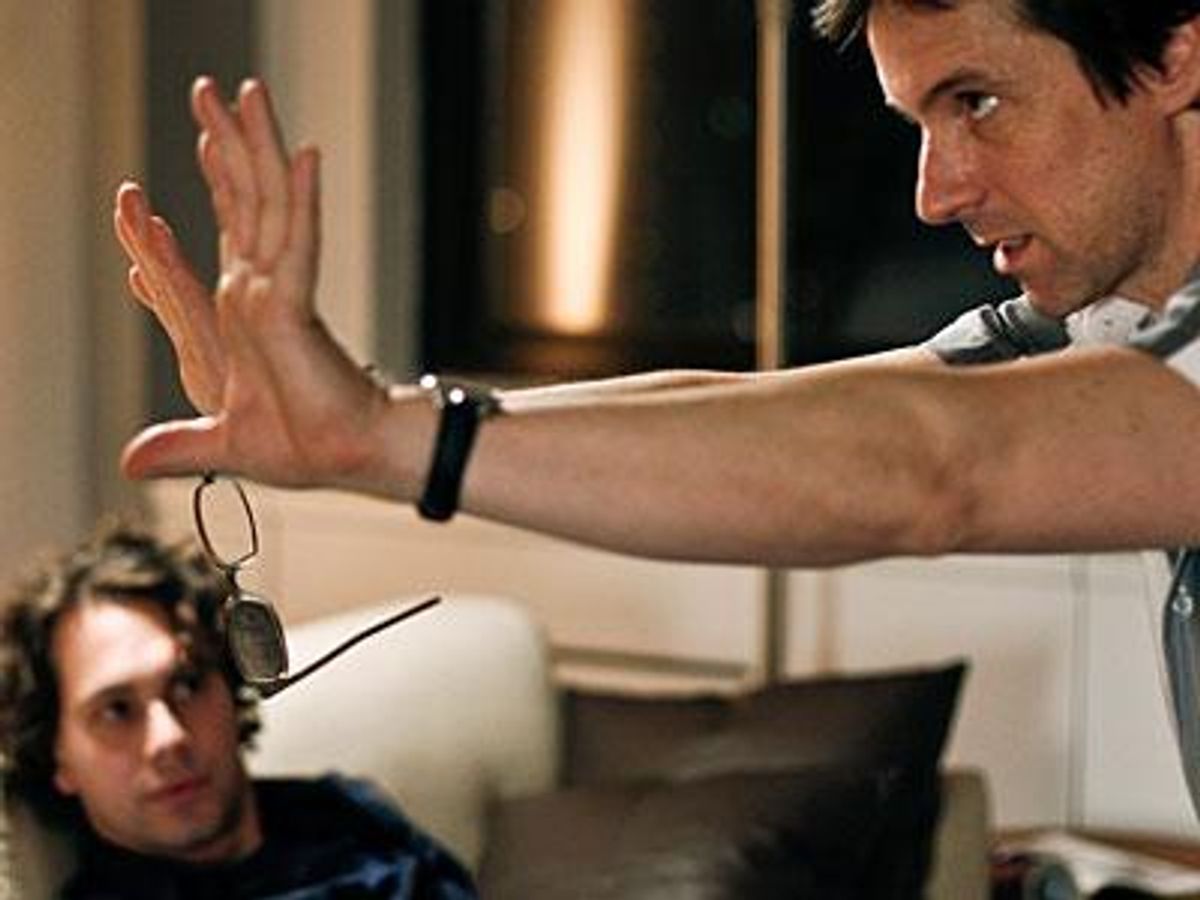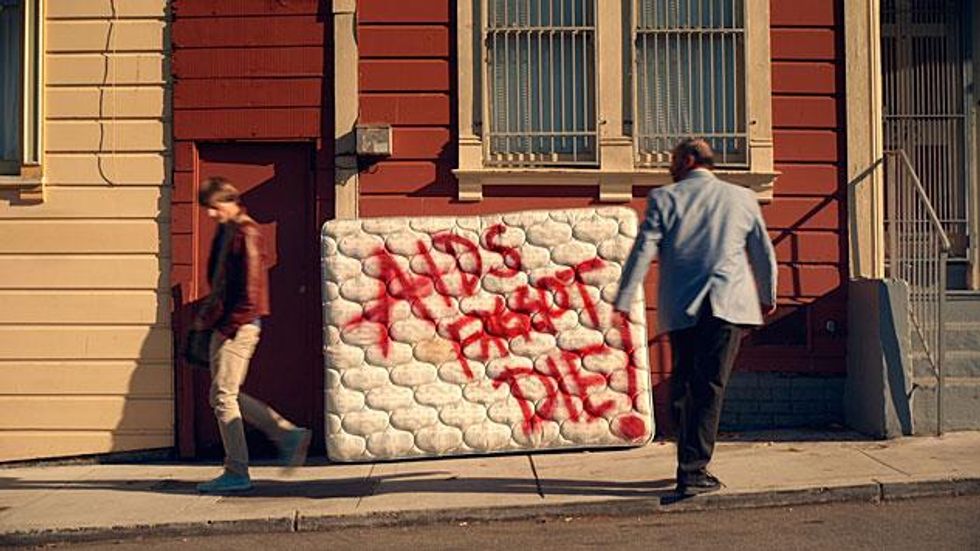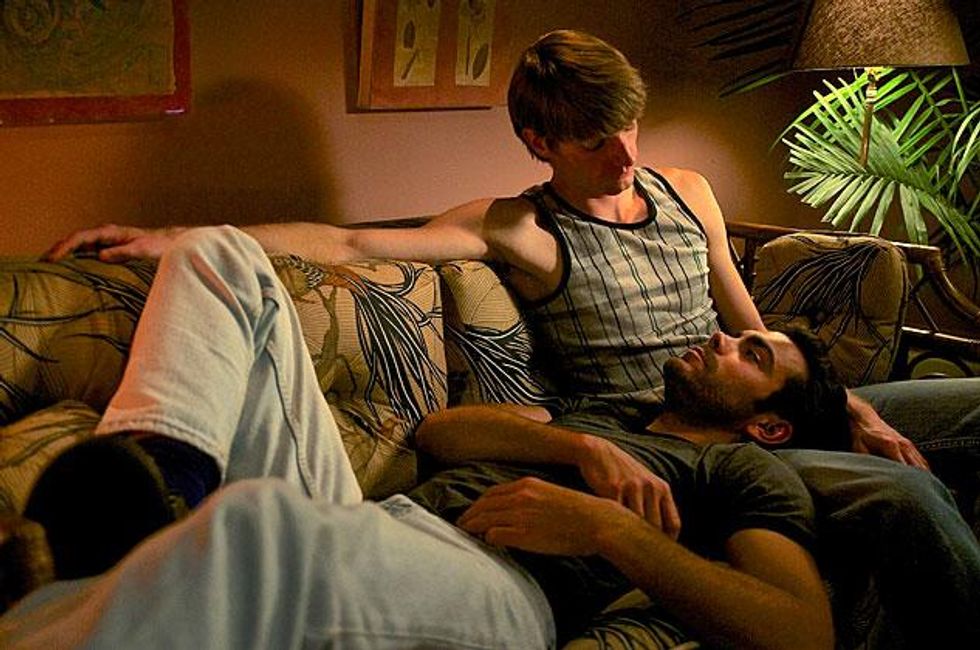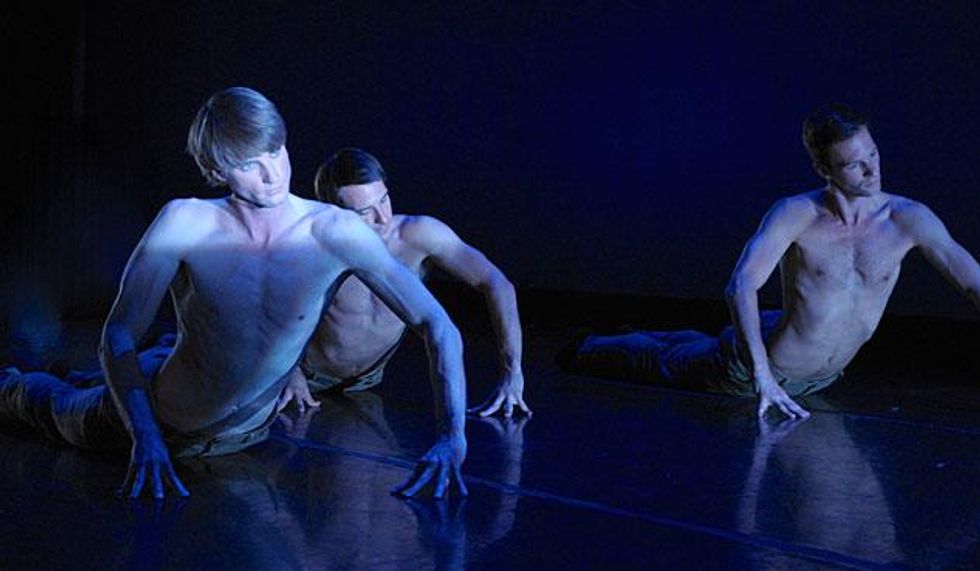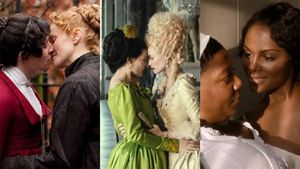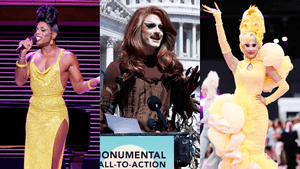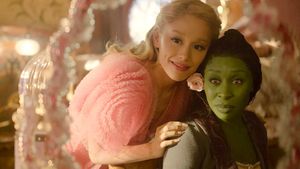Test, writer-director-producer Chris Mason Johnson's second feature film, is set in the San Francisco of 1985, early in the AIDS epidemic, and follows a young dancer as he struggles to navigate both the dance world and the increasingly unfriendly world outside. In the studio, taunts of "Dance like a man!" thwart Frankie's (dancer and first-time actor Scott Marlowe) attempts to transition from understudy to lead in his modern dance company. Out on the streets, he faces antigay slurs and the looming questions posed by the advent of an HIV test. Risk and paranoia complicate Frankie's budding romance with veteran dancer Todd (Matthew Risch), and Test provides no easy answers.
Johnson himself performed in ballet and modern dance companies early in his career before transitioning to the film industry, where he was worked as an executive and script editor. He has also taught screenwriting and film production at Rutgers University, Amherst College, and California College of the Arts. Earlier this week, he answered some of our questions about the making of and inspirations behind Test.
HIV Plus: You were a dancer at around the same time that Test is set. Were your experiences in the dance world your inspiration for the movie?
Chris Mason Johnson: I was a teenager in the mid-to-late 80s ... so I was there during that whole era. So yeah, I drew from my own experience. If you're a novelist you just sit down to write, if you're a painter you just paint, but if you're a filmmaker you're dependent on all these other people and money to do your work. I was like, "I want to make mine personal. I want to just do it. I don't care if I get the seal of approval from the industry." Then I turned to what was most on my mind. This project had been germinating in my mind for literally 10 years, and it had taken all kinds of different forms. But basically I wanted to deal with the dance world in those early years of the epidemic. For a long time I just didn't think this story was worth telling. Who wants to hear about me, who wants to hear about this? And so I was really nervous. [But] it was something that I really had a desire to tell and had for a long time, and I think the time was right.

Frankie (Scott Marlowe, left) walking down an unfriendly San Francisco street.
A lot of films about the AIDS epidemic focus on activism and people who took a political stance, but you chose to focus on regular people who were living through the crisis instead. Did you think it was time to portray a different perspective?
Yeah, that's exactly right. The movies that they've made so far have either had a political angle or politically motivated characters, or they've been deathbed narratives, which is understandable. But this is not a movie about being sick; this is a movie about the fear of being sick. That was the dominant experience. Even people who later became positive, of course, still went through a phase of not knowing and being afraid. So they had a universal sort of existential experience, and I hadn't seen that represented at all. [Test is] not another movie about people getting sick and being sick. Not to knock those movies. We needed those. But this is a smaller angle that has just been overlooked.

Todd (Matthew Risch) looks up at Frankie as they take a break from a party.
The title, Test, applies to a variety of themes. We see Frankie's dance skills tested in rehearsal and onstage, and we feel the gay community's anxiety over whether to embrace the newly available HIV blood test. Toward the end of the movie, you pose a question about the test of monogamy. How do you think the atmosphere depicted in Test contributed to the growth of monogamy, and has the impact of that change reached to today?
It's a complicated issue and a complicated question. I am obviously all in favor of gay civil rights and gay marriage and all that, as we all are. It's fantastic. But also, there was this moment when people got pushed into monogamous behavior maybe a little earlier, though for different reasons, than might have been otherwise, because of the epidemic. My point with all that is just to complicate the history, to remember all the contradictions and to ... remember the details. I don't want to draw any broad conclusions. I think the early epidemic as it's depicted in the movie ... it was all about shaming. And I think our trajectory since then as a community, both positive and negative, has been to reject that shaming and to claim some dignity and respect. AIDS shaming is still a powerful thing in a lot of communities, but in the time that the movie depicts, it was overwhelming. So I think that's moved in a positive direction, but there's still a lot of work to do.
In the movie Frankie is told during rehearsal to "dance like a man," an idea that haunts him as he strives to join the main dance company. Was that something you experienced yourself? Why did you choose to include it in Test?
"Dance like a man" was something I definitely heard in the rehearsal studio. I was trying to represent something that was real, that phenomenon in the dance world. The problem is, people aren't careful enough or smart enough to separate out the performance of gender, which is masculinity/feminity, from sexual identity. So you get these guys who are basically being told "be less gay," and that's the wrong message. The message is, in this dance, it's a dramatic scene with a man and a woman, and we need to believe you desire the woman. That's a difficult acting challenge that has nothing to do with who you are. Also, I found a really interesting resonance with the early AIDS epidemic because in those early years, when the press and the public really scapegoated and shamed, there was this sense of "you're worthless, you deserve to die" and "you had this coming," etc. There's a weird overlap with "dance like a man," "the way you move is no good," "who you are is wrong." So Frankie sort of had it coming from all sides. I definitely just wanted to shine a little light on that issue, which still exists, and I think that ... we still don't know how to deal with it.
TEST Trailer from Serious Productions on Vimeo.
Scott Marlowe, who plays Frankie, portrays the dichotomy of fear and desire brilliantly throughout Test, and I was surprised to learn he's a dancer who had never acted professionally before. How did you come across such a talent?
I found him in San Francisco, and we worked together for six months, workshopping, developing scenes. I taught him acting technique, and he was just really naturally talented at it. I think that was a real discovery with Scott Marlowe. And I think his dancing is really relatable for people. Most people say [they] don't know much about dance ... but then they still know what they like. And I think the way he moves, it just appeals to a broad audience. And that's not always true. It goes back a little bit to that "dance like a man" thing, actually. There's just something about the way he moves. It's not like he's trying to be straight or he's trying to butch it up at all. He's just kind of naturally masculine in a way that appeals to gay and straight, and that isn't fake.

Frankie (front) leads a modern dance choreographed by Sidra Bell for Test.
Test centers on a beautiful dance that you and [choreographer] Sidra Bell worked on together. The dance, featuring the main male cast of professional dancers, strikes a uniquely eerie tone. What ideas and images did you draw from to create the choreography?
Well, the choreography, I wanted to do several things. The thing that most movies that deal with this general subject do is that they take the sex out and they take the eroticism out. That's kind of understandable, because it's very difficult to deal with disease and sex simultaneously. But what the dance offered was an opportunity to put all the eroticism back in: the male body, they're shirtless, they're vulnerable, they're beautiful. In terms of the image motif, we worked with all of these sort of creepy, morbid gestures that we lifted from some paintings by Egon Schiele, who was a Viennese painter. It's kind of a visual metaphor for the whole situation. You have the sexiness and the eroticism and the naked bodies, and it's all men, of course. But then you also have this sort of weird creepy edge to it that represents the sort of paranoia and fear of disease.
How did you pick the perfect music for both the dances and for the Walkman that Frankie constantly listens to?
There's an original score that Ceiri Torjussen [film composer] made, and ... he did a great job. Usually, you finish the movie and then the composer watches it and scores it. But we did all the dancing in two weeks ... and he was doing the music at the same time. So that was much more like a theater dance experience than a typical movie experience. And then for the '80s music, [it] was just fun to find these great things like Bronski Beat and Laurie Anderson. Really emblematic '80s things, not the usual clichés. We wanted to make choices that felt ... iconic but were not so overused.
If you could soundtrack your own life, how would it sound?
Well, I think some of it would sound a lot like Frankie's soundtrack. I would definitely have Laurie Anderson. I would definitely have Tchaikovsky's Serenade. And also just lots of world music. because when there's no lyrics I can really just float. Lots of bossa nova. I would have a bossa nova–scored life.
Test was created with grants from the Horizons Foundation and the San Francisco FIlm Society/Kenneth Rainin Foundation. Recipient of great critical acclaim and two Grand Jury Awards at Outfest 2013, Test is currently available on VOD on iTunes, Amazon Instant Video, and Wolfe on Demand. It's playing in theaters in the Bay Area through Thursday and will open theatrically in New York, Los Angeles, and other select cities beginning Friday. Click here for more information.
